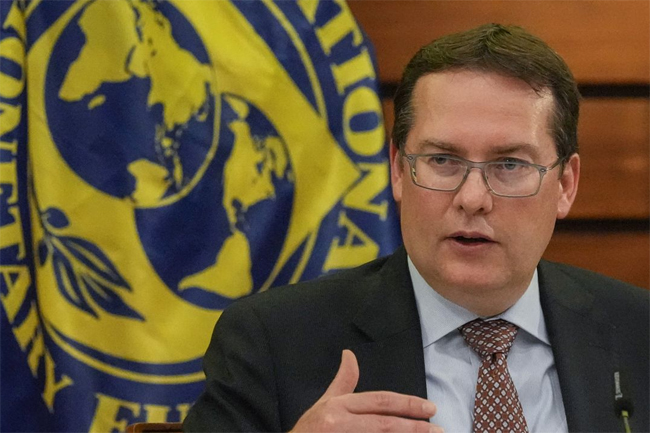International Monetary Fund (IMF) says it looks forward to analyzing the details of the recent agreement between Sri Lankan authorities and the Export-Import Bank (Exim Bank) of China on debt treatment terms.
Senior IMF Mission Chief for Sri Lanka, Peter Breuer told a media briefing on Friday (Oct. 20) that the global lender has taken note of the tentative agreement.
On October 11, the Finance Ministry revealed that Sri Lanka has reached “an agreement on the key principles and indicative terms of a debt treatment” with the China Exim Bank. A government press release read that the agreement in principle covers approximately USD 4.2 billion of outstanding debt.
The Sri Lankan authorities had said the agreement constitutes a key step towards restoring the island’s long-term debt sustainability and would pave the way to a prompt economic recovery. The indicative terms agreed are expected to provide the necessary fiscal space for Sri Lanka to implement its ambitious reform agenda.
Speaking further, Mr. Breuer commended Sri Lankan authorities for publishing on time the ‘Governance Diagnostic Report’. Sri Lanka is the first country in Asia that has undergone the IMF Governance Diagnostic exercise.
He said the island nation’s economy is showing ‘tentative signs of stabilization’ but growth momentum remains subdued and economic recovery is not yet assured.
On Thursday (Oct. 19), the IMF team and Sri Lankan authorities reached a staff-level agreement on economic policies to conclude the first review of the 48-month EFF-supported program. Accordingly, Sri Lanka will have access to SDR 254 million (approximately USD 330 million) in financing once the review is approved by IMF Management and IMF Executive Board.
The IMF team said Sri Lankan authorities’ commitment to implement key recommendations of the recently published Governance Diagnostic Report is a welcome step, adding that concrete steps towards addressing corruption risks and strengthening accountability would be essential for rebuilding economic confidence and making growth more robust and inclusive.



